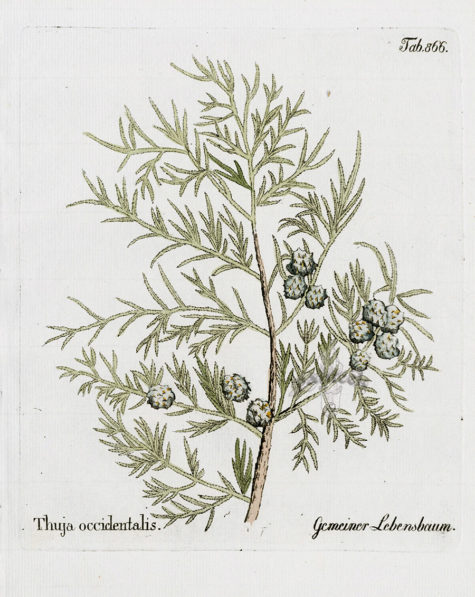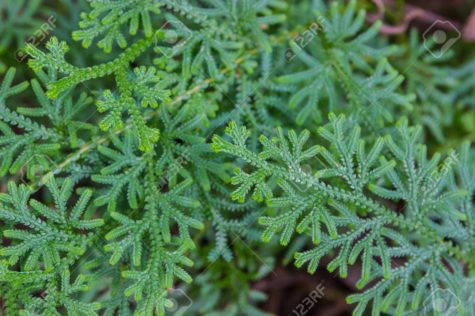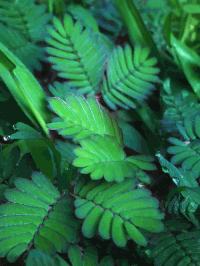Convulsant
Thuja aka Arborvitae
- Parts Used: Young twigs
- Constituents: 1% volatile oil including thujone, flavonoid glyoside, musilage, tannin.
- Actions: Expectorant, Stimulant to smooth muscles, Diuretic, Astringent, Alterative, Anthelmintic, Diaphoretic, Emmenagogue
- Cautions: Avoid during pregnancy. Taken in excess the essential oil can produce unpleasant results; it was officially listed as an abortifacient and convulsant in overdose.
Thuja is a genus of coniferous trees in the Cupressaceae (cypress family). There are five species in the genus, two native to North America and three native to eastern Asia.
- White Cedar – Thuja occidentalis
- Western Red Cedar – Thuja plicata
- Korean Thuja – Thuja koraiensis
- Japanese Thuja – Thuja standishii
- Sichuan Thuja – Thuja sutchuenensis
Members are commonly known as arborvitaes, (from Latin for tree of life) Thujas or Cedars. The name Thuja is a latinized form of a Greek word meaning ‘to fumigate,’ or thuo (‘to sacrifice’), for the fragrant wood was burnt by the ancients with sacrifices. The tree was described as ‘arbor vita ‘ by Clusius, who saw it in the royal garden of Fontainebleau after its importation from Canada.
The Basics
Most of the herbal information I found on Thuja refers specifically to Thuja occidentalis – White Cedar, or Arborvitae – but it is possible that the other varieties share similar characteristics and qualities.
- It is important not to confuse the Western Red Cedar (Thuja plicata) with the Eastern Red Cedar (Juniperus virginiana) as the two are quite different.
The name arborvitae is particularly used in the horticultural trade in the United States. It is Latin for “tree of life” – due to the medicinal properties of the sap, bark, and twigs. Despite its common names, it is not a true cedar in the genus Cedrus, nor is it related to the Australian white cedar, Melia azedarach.
Thuja is used for respiratory tract infections such as bronchitis, bacterial skin infections, and cold sores. It is also used for painful conditions including osteoarthritis and a nerve disorder that affects the face called trigeminal neuralgia.
Some people use Thuja to loosen phlegm (as an expectorant), to boost the immune system (as an immunostimulant), and to increase urine flow (as a diuretic). It has also been used to cause abortions.
Thuja is sometimes applied directly to the skin for joint pain, ostearthritis, and muscle pain. Thuja oil is also used for skin diseases, warts, and cancer; and as an insect repellent.
In foods and beverages, Thuja is used as a flavoring agent. In manufacturing, Thuja is used as a fragrance in cosmetics and soaps.
According to WebMD, Thuja contains chemicals that might fight viruses. It also contains a chemical called thujone that can cause brain problems.
Rennie Luttrull: queen-annes-lace-seeds
Rosanna: Spignel aka Bald Money
Annamarie Squatrito: Fumitory
EILEEN Klinghagen: Pumpkin
Mahmudul Hasan: Celery



